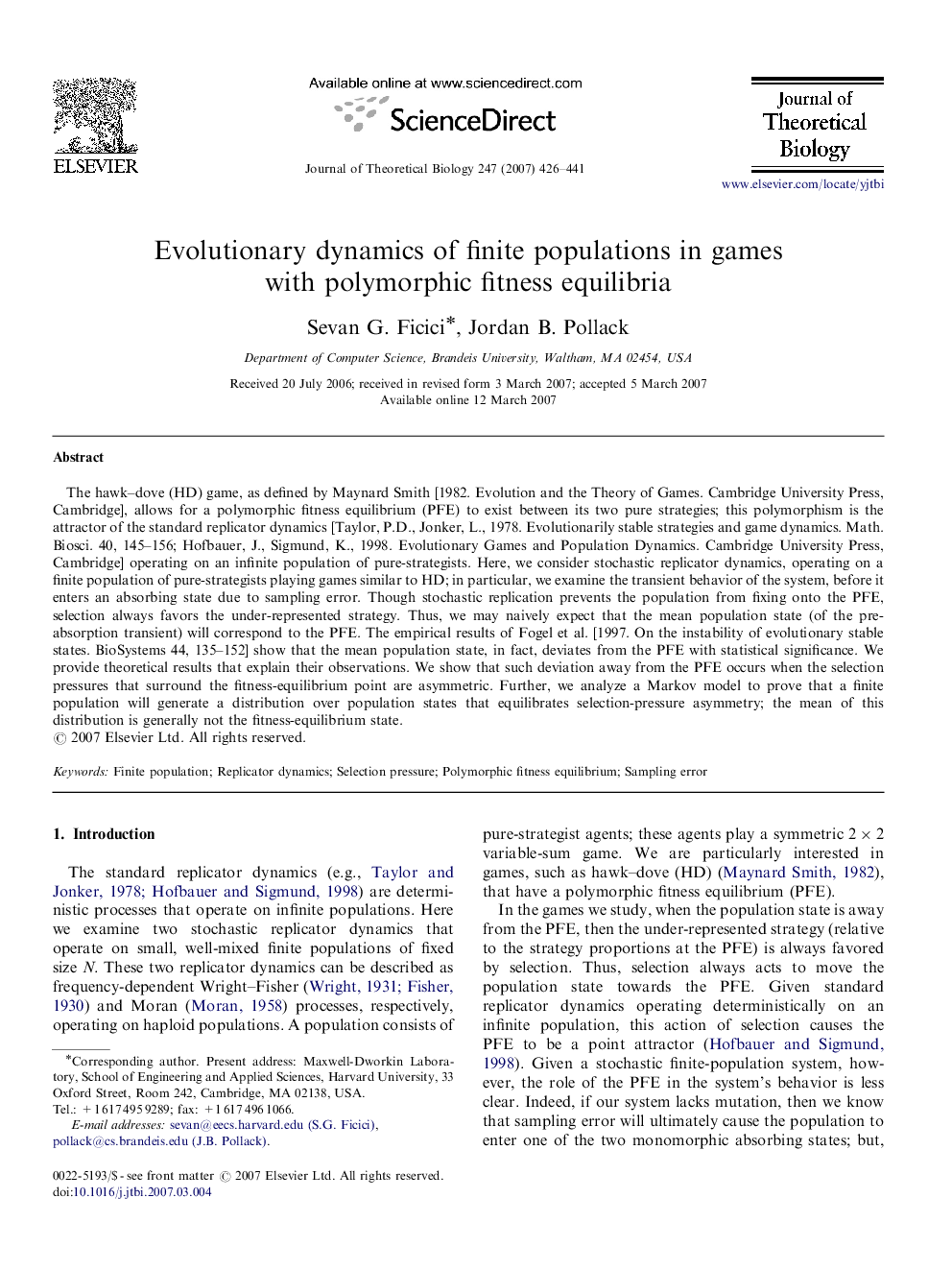| Article ID | Journal | Published Year | Pages | File Type |
|---|---|---|---|---|
| 4498846 | Journal of Theoretical Biology | 2007 | 16 Pages |
Abstract
The hawk-dove (HD) game, as defined by Maynard Smith [1982. Evolution and the Theory of Games. Cambridge University Press, Cambridge], allows for a polymorphic fitness equilibrium (PFE) to exist between its two pure strategies; this polymorphism is the attractor of the standard replicator dynamics [Taylor, P.D., Jonker, L., 1978. Evolutionarily stable strategies and game dynamics. Math. Biosci. 40, 145-156; Hofbauer, J., Sigmund, K., 1998. Evolutionary Games and Population Dynamics. Cambridge University Press, Cambridge] operating on an infinite population of pure-strategists. Here, we consider stochastic replicator dynamics, operating on a finite population of pure-strategists playing games similar to HD; in particular, we examine the transient behavior of the system, before it enters an absorbing state due to sampling error. Though stochastic replication prevents the population from fixing onto the PFE, selection always favors the under-represented strategy. Thus, we may naively expect that the mean population state (of the pre-absorption transient) will correspond to the PFE. The empirical results of Fogel et al. [1997. On the instability of evolutionary stable states. BioSystems 44, 135-152] show that the mean population state, in fact, deviates from the PFE with statistical significance. We provide theoretical results that explain their observations. We show that such deviation away from the PFE occurs when the selection pressures that surround the fitness-equilibrium point are asymmetric. Further, we analyze a Markov model to prove that a finite population will generate a distribution over population states that equilibrates selection-pressure asymmetry; the mean of this distribution is generally not the fitness-equilibrium state.
Related Topics
Life Sciences
Agricultural and Biological Sciences
Agricultural and Biological Sciences (General)
Authors
Sevan G. Ficici, Jordan B. Pollack,
